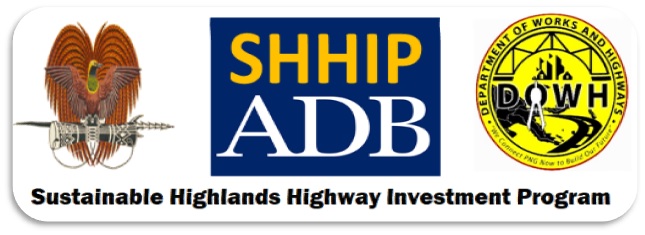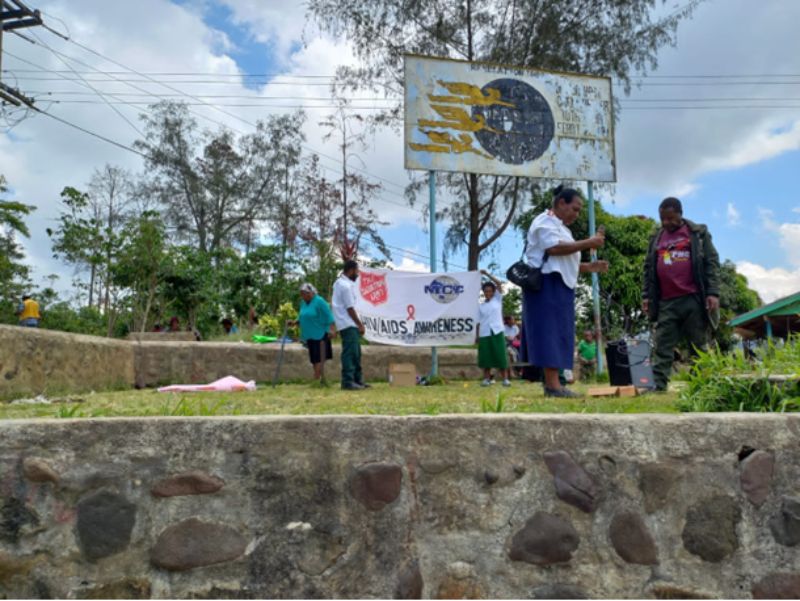
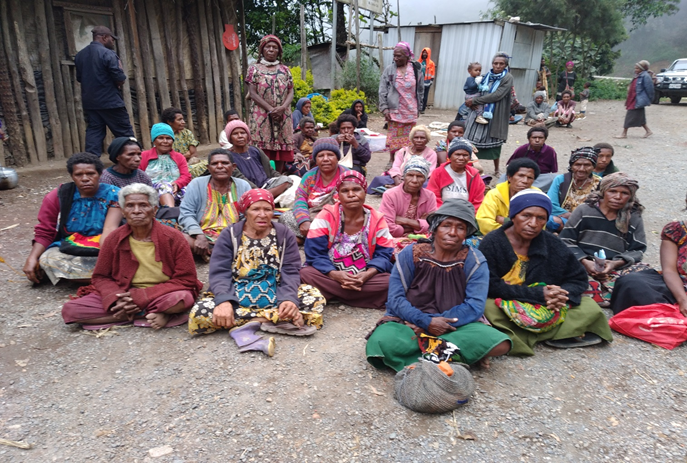
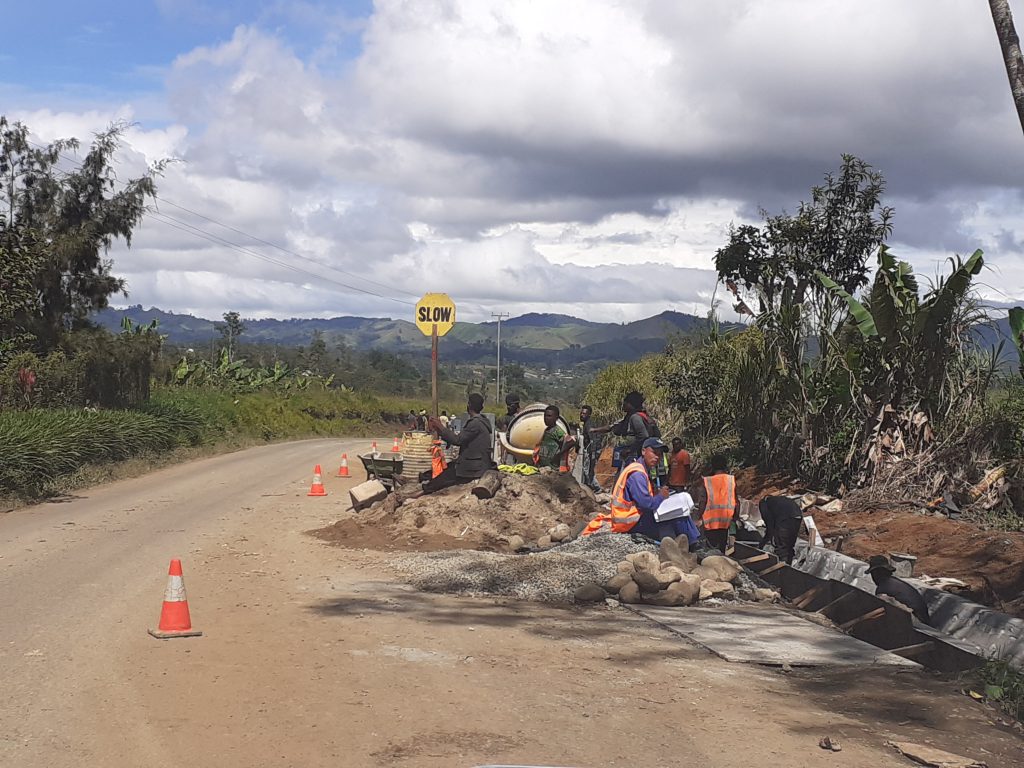
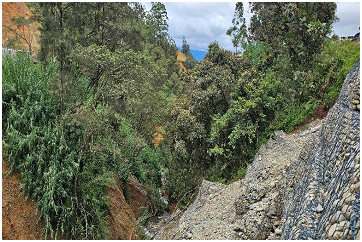
SOCIAL SAFE GUARDS -TR1
SHHIP civil works under Tranche 1 are mostly confined to the construction limits within the existing right-of-way of the Highway. As majority of the social safeguards’ requirements are under the obligations of the Implementing Agency (IA/DoW), the Program Management Office (PMO) has been supporting the IA/DoW, Contractors and other teams in ensuring effective and efficient implementation of the applicable social safeguard requirements. This includes support in implementation of the gender action plan (GAP), the due diligence report (DDR), and management of involuntary resettlement impacts as have been triggered along most of the SHHIP Sections of the Highway
The process for resolutions to the legacy issues as have been documented in the Due Diligence Report (DDR) have been completed for seven of the 24 initially identified sites, while the process is ongoing for the remaining such sites and validating the integrity of the numerous claims received afresh (17 sites till date). The DDR update works have been delayed due to COVID-19 impacts – instead of July 2020, it is now planned to be completed within Dec 2020.
Based on the Engineering Study findings for the 22 critical sites along the RIC Section, and the road failure localities along the CW2 Section, social impact assessments, required plan preparation and its implementation are planned to be conducted by the PMO social team during the coming months.
Implementation of the Gender Action Plan (GAP) is ongoing, though some of the activities have been affected, due, mainly, to the COVID-triggered impacts. Gender-based violence prevention plan has been drafted – finalization and implementation are planned to commence as soon as conducive situations resume.
The Grievance Redress Mechanism (GRM) established in each SHHIP Province has been found requiring enhanced engagements of the GRCs for full-fledged functionality of the GRM – of the 107 grievances received during SHHIP implementation up to Nov ‘20, 96 have been resolved while remaining 11 are being processed further at various levels, and PMO support continues in finding the resolutions.
The Grievance Redress Mechanism (GRM) established in each SHHIP Province has been found requiring enhanced engagements of the GRCs for the full-fledged functionality of the mechanism. Of the 102 grievances received during SHHIP implementation up to Oct ‘20, 95 have been resolved while remaining seven are being processed further at various levels, and PMO support continues.Initial rounds of capacity building activities have been conducted in the initial stages of SHHIP implementation (2019) for social teams engaged with the PMO, Supervision Consultants and Contractors – PMO is planning to resume them once the COVID-triggered scenario becomes conducive. Also, preparation of the required training modules for the capacity building program for SHHIP and DoW wider teams (including the ESSB) are ongoing. Preparation of the required training modules and other preparatory works are planned for the coming months.
Key social challenges encountered include:
- Managing the Legacy Issues – team support continues in efforts towards expediting the resolution pace;
- Avoidance of adverse impacts on private assets/improvements during implementation of civil works – efforts continue in enforcing construction-limit compliances.
- Women/female participation in community consultation (40%) and community engagement activities (30%) – efforts are being made through enhanced information dissemination and awareness on part of the key stakeholders to hike the currently low participation figures to meet the targets.
- Team capacity, especially on part of the contractors and the Construction Supervision Consultants, remains challenging – continuity to the capacity building program planned by the PMO is envisaged to be supportive.
- Site safety and security issues, enhancing Contractors’ adherence to the national labor laws; and timely implementation of some of the key gender action plan/DMF requirements, amongst others, are some of the other major social challenges the PMO has been facing.
- Imminent social safeguards key activities planned to be conducted during the next few months by the PMO social team providing further support to the PMO/DOW include the following:
- supporting the PMO/DoW in smooth implementation of SHHIP works, compliance assurances, preparation of the training/capacity building modules for PMO, ESSB and wider project teams pursuant to Loan Covenants and GAP requirements, and periodic reporting functions, amongst others.
- preparation of the Quarterly Social Safeguards Report for Oct – Dec’20;
- inputs to monthly and quarterly consolidated PMO reports;
- preparation of Safeguards Semi-Annual Report for Jul – Dec’20;
- conducting T1 impact assessments, and preparing plans/reports as applicable;
- preparation of various training materials and modules for capacity building activities as are required pursuant to SHHIP Loan Covenants and the GAP, inter alia;
- continuation of the Capacity Building programs for SHHIP PMO teams;
- implementing capacity building training program for the ESSB and other teams pursuant to SHHIP Loan Covenants and gender action plan requirements;
- support to Legacy Issue resolutions;
- Due Diligence Report update and submission;
- support to formation of Community-Based Road Construction and Maintenance Groups;
- Social Infrastructure Plan finalization and implementation;
- preparation and implementation of community-based road safety awareness plan and other Tools pursuant to SHHIP GAP, etc.;
- implementation of the Gender-Based Violence Prevention Plan;
- preparation of the Semi-Annual Social Safeguards Report for July to December 2020;
